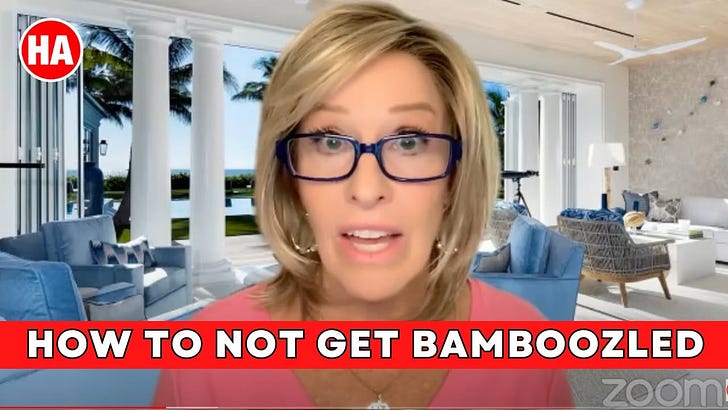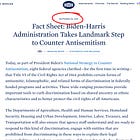Dr. Graves, a frequent guest on my show, is my go-to mentor for courtroom complexities. He’s the creator of the “How to Win in Court” law course. This course delves into the nuts and bolts of everything you need to know to navigate court procedure, tactics, evidence, and more. It's like earning a law degree in a fraction of the time. Whether you are currently involved in a legal matter, just interested in learning more about the system, or know someone who is, this is vital knowledge that you can acquire and share.
I studied his course (and still continue to study it) to prepare for the lawsuit I filed against Orange County. Instead of sitting around lamenting the world’s ills, I prefer to take action by expanding my knowledge.
Can’t afford a lawyer?
Can’t find a lawyer who will take your case?
Do you want to find out how I have learned what I know about the law?
Being prepared is crucial; you might face a summons or wish to take legal action one day. Click to order now — even if you don’t have a case in court yet.
The Rules of Evidence & How to Object
Dr. Graves delivers a mini-lesson on evidence and objections in our most recent interview, giving helpful advice and examples:
The rules of evidence in court dictate the admissibility of information.
The evidence rules act as a filter. If you know the rules and how to object, it keeps the bad stuff out and lets the good stuff in.
Dr. Graves divides this into "the two Rs, two Cs, and two Ps:" relevance, reliability, credibility, competence, prejudice, and privilege.
The rules serve as a fundamental framework for the admissibility and presentation of evidence in legal proceedings. These rules are designed to ensure that the information presented in court is reliable, relevant, and fair. Here's a concise summary of the key principles:
Privileges protect certain communications (for example, client/attorney communications or spousal privilege). Hearsay is generally inadmissible, except for recognized exceptions. Expert testimony requires qualification and reliable facts or data. Character evidence is limited. Non-testimonial evidence has to be authenticated and the best evidence rule prefers originals over copies. The exclusionary rule bars illegally obtained evidence. And judicial discretion plays a role in admissibility decisions, promoting fair trials.
Objecting, which allows parties to challenge evidence that does not meet these standards, is just as important as understanding the rules of evidence. To object, promptly state the basis—irrelevant, hearsay, etc.—and wait for the ruling.
Whether navigating expert witnesses, character evidence, or objections, understanding these rules is essential for effective participation in legal proceedings. Objections ensure fair trials, promoting the presentation of reliable and relevant information while maintaining the integrity of the judicial process.
I hope you'll be inspired, as I am, to learn more about this final bastion of justice and method of preserving your freedom.
Read Next:
Thank you for being a reader of The Healthy American substack. All content is free upon publication to all readers. A special thank you to those who support my work with a paid subscription. Paid subscribers have access to the article archive, can leave comments on all posts, and are invited to our monthly private live Q&A webinars where we do deep dives on issues that matter to you.
Join me daily at 4 pm Pacific / 7 pm Eastern for my live broadcasts on my youtube channel here.
I’m grateful for my financial supporters! I could not do this work without you. To make a one-time or monthly donation, please click here.







Evidence is the key!! My professor in lawschool, who was a Toshiba atty, proved it to the class by successfully objecting to almost every argument we tried to make to him in an impromptu mock trial. We then studied what he showed us and why each pc of evidence could not be introduce. He even objected to many of our responses before we even got to the pc of evidence. He had us and we all knew it. Right then i realized that an Evidence genius could win anything!
Your sharing and plethora of information is commendable. Thank YOU for all you do for Americans, and for humanity! Regardless of what we learn, the court system is corrupt.